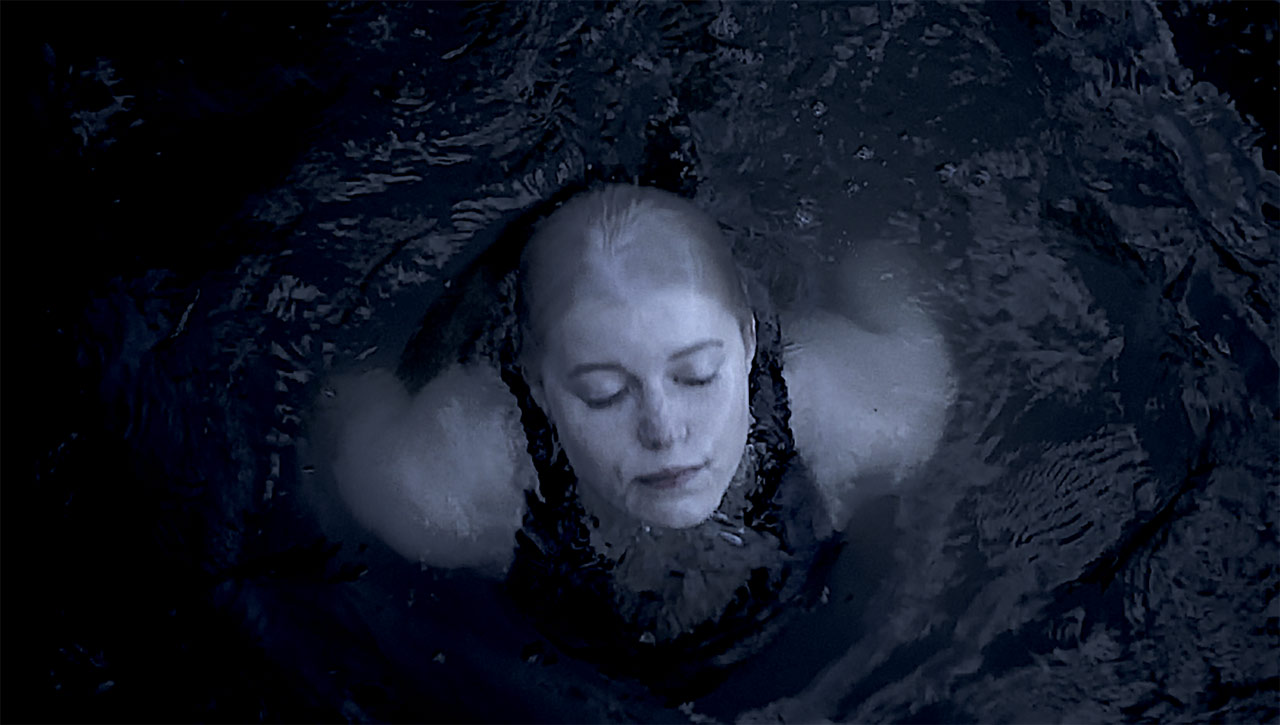Nina E. Schönefeld: ›Dark Waters‹
Nina E. Schönefeld’s ›Dark Waters‹ (2018) is set in the year 2029 and simulates a post-apocalyptic world, in which all the oceans are so contaminated by plastic waste that they have turned into so–called ›death zones‹. The only creatures that are still able to survive in the polluted waters are some poisonous jellyfish – an environmental disaster that the government is trying to conceal from the public. The film follows helicopter pilot and heroin Silver Ocean as she embarks on a risky search for the truth.
›Dark Waters‹ is part of the cinematic series ›The Trilogy Of Tomorrow‹, together with ›Snow Fox‹ (2018) and ›L.E.O.P.A.R.T.‹ (2019). The trilogy addresses current political and ecological issues and tells the stories of environmental activists fighting for political change, freedom of expression, and the safeguard of biodiversity. Each film can be read as a single episode of a potentially never-ending series. ›Dark Waters‹ recalls the disturbingly familiar scenario of ecological havoc caused by the climate change-induced blooms of Nomura’s jellyfish in Japan. Over the past few years, the giant jellyfish have swarmed over the Japanese Sea with alarming frequency, causing the decimation of the local marine fauna and the collapse of the country’s ichthyic economy. Yet, the final of the film is open-ended, as to convey Schönefeld’s stance that saving the environment is still a possible outcome.
